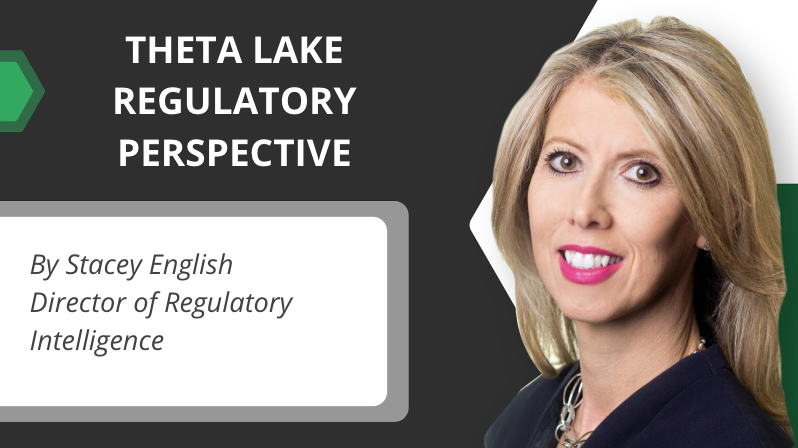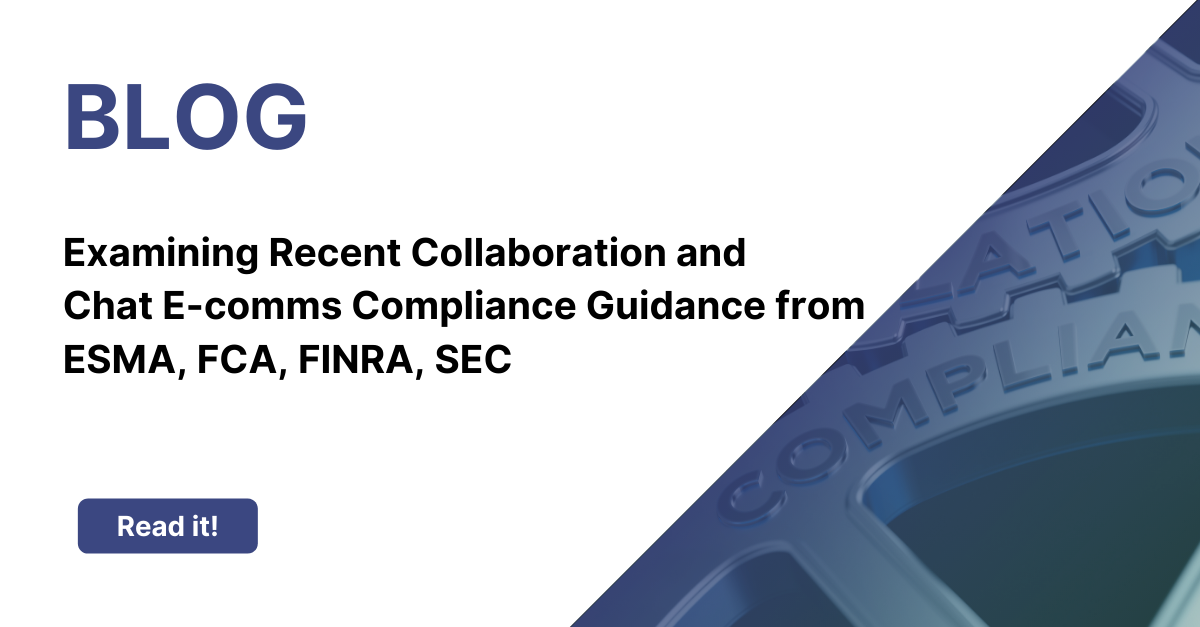How to Comply With the New CMS Communications and Marketing Requirements for Medicare Advantage and Part D Conversations
New recording, disclosure, and compliance rules
New electronic communications recording, disclosure, and oversight rules from the Centers for Medicare &Medicaid Services (“CMS”), effective 1 October 2022, highlight the heightened scrutiny around the sale of complex healthcare products, to promote transparency and protect consumers. In a digital age where prospects are bombarded with telemarketing calls, online advertising, social media, and promotions from celebrities and influencers, it’s more important than ever that they receive accurate information about sophisticated products. Clarity is particularly critical when it relates to the purchase of essential healthcare services.
The new CMS rules can be viewed as part of a broader global trend toward increased disclosure for complex healthcare, financial, or insurance products directly marketed to customers. Complaints about misleading advertising and sales of Medicare Advantage (“MA”) plans and Part D were the key catalyst for the CMS regulatory updates. In the one year period between 2020 and 2021 the number of complaints submitted to CMS soared from less than 16,000 to over 39,000 – a staggering increase.
Topics: compliance, healthcare, record-keeping, electronic communications, archiving
Movius and Theta Lake announce partnership to solve WhatsApp and SMS compliance
With a series of enforcement actions totaling about $1 billion in fines from the five biggest US investment banks, the SEC has made it clear there will be significant financial consequences if firms don’t start policing the use of communications channels, specifically the increasing use of SMS text and messaging apps, like WhatsApp, in their workforce.The seismic shift towards heavier enforcement comes after a warning was issued last October by the SEC that firms "need to be actively thinking about and addressing the many compliance issues raised by the increased use of personal devices, new communications channels, and other technological developments like ephemeral apps."
Clearly regulatory bodies have served notice - and the race is on to not only comply, but balance productivity gains with increasing regulatory scrutiny. How can firms avoid the worst case scenario of fines and sanctions (and resultant bad PR) while also not disrupting their mobile workforce and lastly, minimize complexity in their mobile/IT infrastructure?
IT: Caught in the middle between business and compliance requirements
Recent regulatory enforcement efforts describe only part of the story when looking at the current state of governance and the hybrid workplace. Two years after the start of the COVID-19 pandemic, it's clear that “work from anywhere” is here to stay for the foreseeable future. Like many industries, financial services firms have been looking at ways to more effectively engage and support their clients on their preferred channels, which includes SMS and WhatsApp. The real-time communication has enabled increased productivity and richer interactions but has come at a cost. Those firms are now grappling with how to provide WhatsApp, and related services, but in a controlled manner and balanced with a strong focus on compliance, security and corporate IT standards. Users have also made it clear that they will alternate the personal use of technology with their work efforts. The days of carrying two different mobile devices, like cowboys with two holsters, are in the rearview mirror.
Legacy approaches to supporting sanctioned WhatsApp usage do not fit the current hybrid workplace. Tools that can’t capture the full spectrum of WhatsApp services – WhatsApp Voice, SMS and Mobile Voice, while also protecting the fidelity and context of the conversation for compliance purposes, can add more complexity, and another set of challenges to the ones firms are already facing today. For mobile communications compliance, the challenge is having a comprehensive capture solution for all employees’ mobile and modern communication platforms and archiving them in one central location. This solution also needs to be able to be deployed across all users effectively and efficiently at an administration level, while ensuring personal communications are separated from business communications.
The need for mobile productivity with integrated compliance and security are not oppositional- and shouldn’t require making tradeoffs. It's clear that we can’t ask users to retreat and sacrifice productivity gains that will put the organization at a competitive disadvantage.
Introducing our partnership with Movius
Topics: compliance, supervision, electronic communications, WhatsApp, SMS, mobile voice
10 Predictions for 2022: Communications, Collaboration, and Compliance
The last two years have brought tremendous change, forcing us all to adapt and adopt technology, processes, and initiatives to stay connected virtually in an era where live interaction has been mostly restricted. The communication and collaboration market was front and center in making this possible.
Topics: compliance, predictions, surveillance, electronic communications, communications, collaboration
Examining Recent Collaboration and Chat E-comms Compliance Guidance from ESMA, FCA, FINRA, SEC
It’s clear that the flexibility regulators including ESMA, the FCA, FINRA, and the SEC offered financial services firms around the relatively unfettered use of modern collaboration and chat tools like Zoom, Microsoft Teams, and Webex by Cisco during the pandemic has come to an end. No action relief issued at the outset of COVID-19 has expired, and regulatory missives in the second half of 2021 indicate a marked change of tone and expectations for firms using dynamic communication platforms.
Topics: compliance, chat compliance, surveillance, monitoring, regulations, electronic communications





